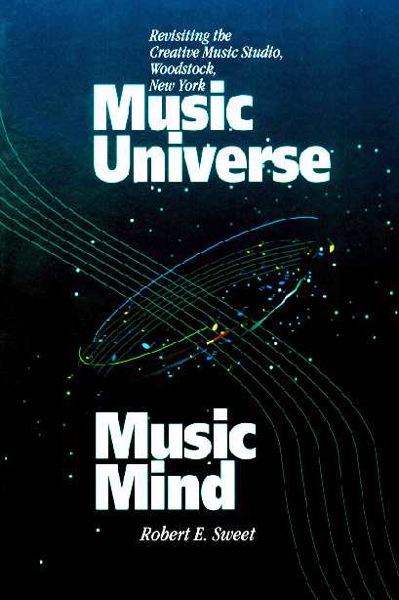From June 11 through June 19, there was quite a bit of improvised music with visiting musicians happening in New Orleans. Tim Daisy played 3 shows in New Orleans and one in Lafayette, each with a different combination of musicians.
On Monday June 11, we played at The Big Top in New Orleans, as a trio with Tim on drums, Justin Peake on sampler, and me on my trombone/computer/sci-fi instrument rig. There are video of excerpts of that show here: http://jeffalbert.com/tim-daisy-jeff-albert-justin-peake/.
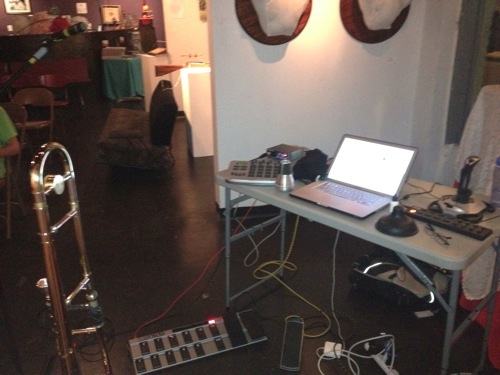
My computer/trombone/etc rig
Tim also played at Open Ears with dave Cappello, Ray Moore, and myself; at the AllWays Lounge with Brad Walker and Helen Gillet; and at Cité des Art in Lafayette with Josef Butts, and myself. Audio documentation of some of these gigs may appear at some point.
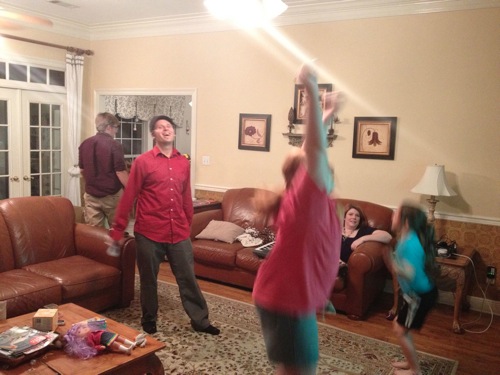
On Friday, Tim got schooled at Wii tennis by my daughters.
On Monday June 18, Rob Cambre, of Anxious Sounds, put together a show of ad hoc improvisations at the AllWays Lounge featuring Joe McPhee and the members of The Thing with some local musicians, including Will Thompson, Rob Cambre, Donald Miller, and me. It was a lot of fun, and Rob did a great job of grouping musicians in a way that made for a good show.
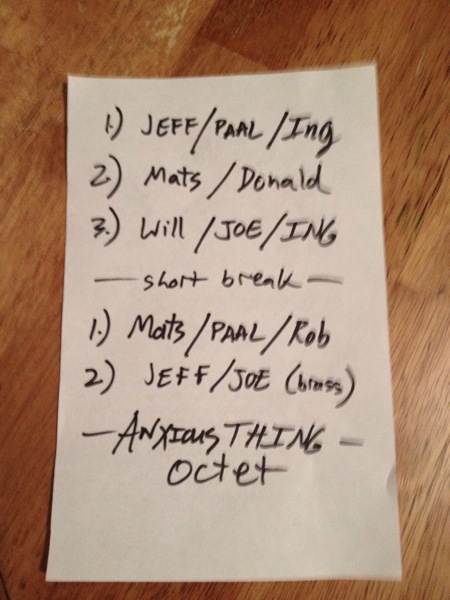
The set list for Monday June 18.
On Tuesday June 19, The Thing and Joe McPhee performed on the Open Ears Music Series. It was the last gig of the tour, and they brought it hard. It was a fabulous close to a busy but musically rewarding 9 days.
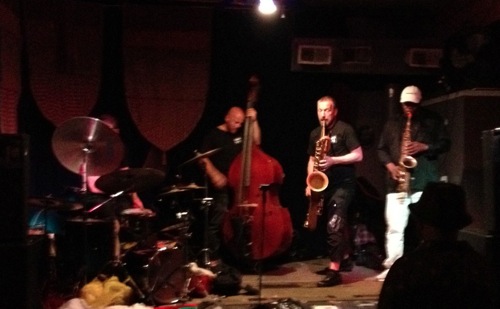
l to r: Paal Nilsson-Love (behind cymbal), Ingebrigt Håker-Flaten, Mats Gustafsson, & Joe McPhee

